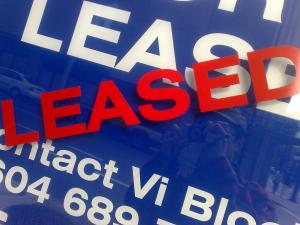Buying a Home on Leased Land
When you're looking for a home, there are standard real estate listings like single family homes and condos. Then there are your non-standard listings. The ones that can seem like a mega-deal...or a killer trap. One such non-standard listing is a home on leased land, and this type of home purchase can come with some perks and some dangers. Let's take a look at this type of real estate investment a little more closely.
What is a Leased Land Home?
When a home is listed for sale, it is often assumed that the land is part of the purchase price. And often it is. But in some parts of the country, buying a home does not guarantee that you're also purchasing the land beneath it.
In a leased land contract, the buyer purchases the home and then must pay for use of the land. Often, in these situations, the buyer must take out a mortgage to purchase the home, pay a monthly lease fee for the land and pay a monthly HOA (Homeowner's Association) fee for the upkeep. The upkeep for the land may then be included in the HOA fee, so sometimes the buyer will not have to mow the lawn or complete other upkeep on the land itself.
So how does this differ from a condominium, you ask? Good question. A condo will also charge an HOA fee, but there is not an additional contract (or charge) for any lease of the land. In a condominium transaction, the land is owned by the condo association; the condo owner simply owns the interior of the condominium. There will never be a case where the condo owner can be forced from their home because a lease is up.
The Dangers of a Leased Land Contract
Leased land homeowners, on the other hand, do face this danger. The lease agreement is completely separate from the real estate purchase agreement, meaning that a buyer could purchase the home with a 30 year mortgage and sign a lease agreement for 20 years. When the lease agreement is over, the leaseholder is free to do whatever he pleases with the land, including sell it, transfer the lease, increase the lease fee or evict the homeowner from the land and "all of its improvements" (read: your home).
For this reason, many mortgage companies and banks will not extend mortgages on these types of homes, unless the lease matches their mortgage term (for example, a 30 year lease may be acceptable in a 30 year mortgage transaction). Even so, the buyer still faces risks in purchasing this type of home: the buyer could pay the mortgage off after 30 years and still face eviction when the lease is up.
The Positive Side of Leased Land Agreements
Of course, leased land homes would not be relatively common if they did not come with some perks. Often, the purchase price of these homes is much lower than traditional homes. Also, one of the more common types of leased land agreements exists in trailer parks; the perk to trailer park ownership is that the homeowner has the choice to easily move the home to another leased land area.
Protecting Yourself in a Leased Land Purchase
Obviously, with the dangers of leased land agreements, it is important to protect your interests before signing the lease. To accomplish this, it may be necessary to hire an attorney, who will read the entire agreement and protect your interests in the deal.
Overall, a leased land home can be a good deal, but there are some dangers as well. Making sure you have legal representation can help you sort through the agreement and come out ahead.
- Login to post comments
-







femmefrugality wrote:
Mon, 07/09/2012 - 19:26 Comment #: 1I never even knew this happened till I learned about mobile home parks and the bad financial situation it puts "home owners" in. Sounds VERY similar to what you're talking about here. I think the negatives outweigh the positives.